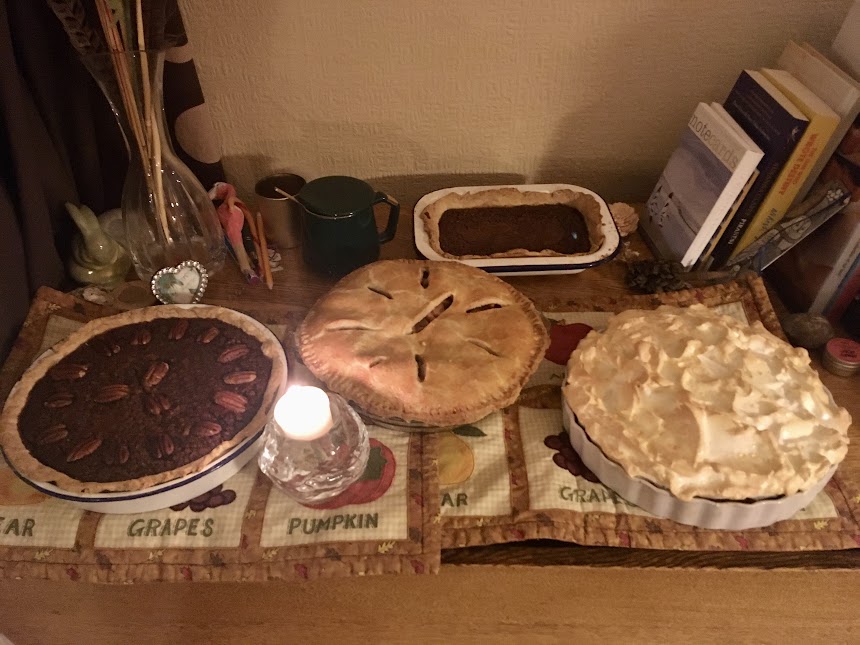This Week’s Bit of String: A whole block of cheese
It’s Friday last lesson again, and the English teacher has wisely chosen to engage our bottom-set Year 10s through writing about food. First, they are to describe their dream meal. I scribe for one of our special needs students while he tells me about his family’s cottage pie.
“Do you put a bit of cheese on top?” I prompt.
“Not a bit of cheese—a whole block!”
He tells me how they melt a whole block of cheese, sprinkled with herbs, and then pour it over the mash. When we move into class discussion, I’m urging him, “Tell about the block of cheese! Tell about the block of cheese!”
The teacher gets it. Her eyes widen as she hears about this feat of culinary excellence, and she calls it life-changing. The other kids, often so derisive at age 14/ 15, are chiming in appreciatively and they listen to each other share, their respect generally unwavering whether it’s one girl talking about her Jamaican parents’ curried goat, or the boy who lives on a farm discuss his chickens, or someone else describe her German grandmother’s bratwurst and peppers soup.
Funnily, the previous night I’d helped host a Women Writers Network Twitter Chat on the topic of Women Writing about Food. Lots of creative women joined to talk about food in literature, about how to describe it and what it can signify. You wouldn’t have thought there was anything amiss in the Twitterverse; it was just people coming together for a lively, supportive discussion.
The Room Where It Happens
While food and eating can have strong associations with loss and self-esteem issues, it also brings us together. Many of us are privileged enough to have happy kitchen memories from somewhere, and we’ll go still and listen when someone else recounts theirs. Being from kind of a big family, when I was growing up we were a bit strapped for cash, but we almost always had supper together and meals were noisome and fun.

My original writing location was the family kitchen table, although it was just outside the kitchen at the time. My mom had a typewriter set up there for work, and when I was four, I used it to type my first story. We made Valentines and decorated Christmas cookies and Easter eggs all at that table.
Not everyone gets to have that, of course. One boy in our Year 10 class offered up KFC as his dream meal, and didn’t join in with any tales of lovingly home-cooked food. I worry it might have been hard for him listening to what others were able to discuss.
Sometimes, the longing to connect can make us eat irresponsibly. I related hard to Nikesh Shukla’s chapter on food in his memoir Brown Baby. He writes, “Food is home and home is what I yearn for.” As an immigrant now also dealing with an empty nest, I truly get that.
Present in Its Absence
Almost as significant as food itself is the lack of it. Hunger can motivate creativity as much as satiation can—perhaps more. My first published story, in the Bristol Prize Anthology in 2010, was about a Haitian girl whose mother sold mud pies (literally) for a living. It reflects the fact that there are people in the world so disadvantaged, they eat earth.
Eating also makes a great metaphor. In the Retreat West anthology, my story has a girl called April describing how her older sister was a rapacious learner. I’m still very fond of the opening to that one:
“My sister devoured all history, beginning in the summer vacation when she was six. The century soon ending was Tabitha’s starter. She told me barbed wire cut her lip and toxic fumes tainted everything. Some of it was outer-space-cold, some burning-rainforest-hot.”

I’m not sure I’ve written many stories that don’t at least mention food. My latest novel, currently in polishing stages, is about Eve and the creation myth, so it features the forbidden fruit (which I’ve decided was a peach, by the way. Who gives up paradise just for an apple?) and contrasts the bounty of Eden with the strife of exile. In this story, of course, food is the ultimate separator, as that peach causes all kinds of rifts beyond just banishment. But as Adam and Eve’s family grows, mealtimes are when everyone gets together, round the fire circle, and are often where tensions or alliances become more visible.
How does food feature in your writing? I hope the Thanksgiving feast (if you are of that persuasion) brings comfort, joy, inspiration, and maybe even a whole block of cheese.